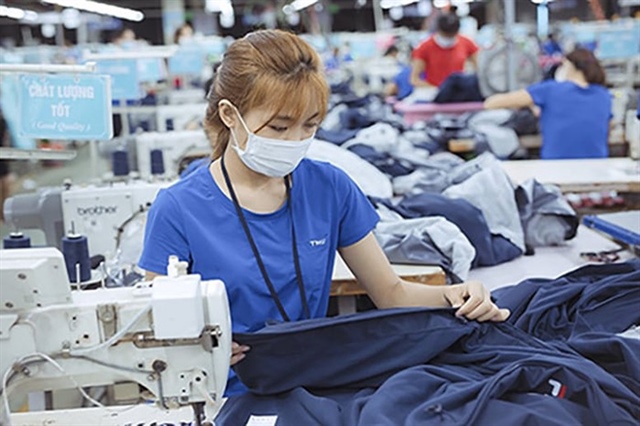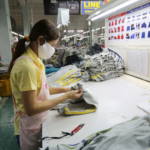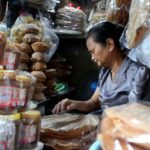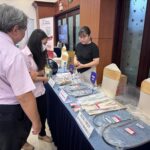Although consistently among the key export sectors, Vietnam’s textile and footwear industries have yet to establish their domestic market position.
According to Mr. Tran Huu Linh, Director of the Department of Domestic Market Management and Development, the Ministry of Industry and Trade has implemented numerous practical solutions to bring Vietnamese textile and footwear products closer to domestic consumers. This approach is necessary as exports continuously face barriers in major markets such as the US, EU, South Korea, and China. Focusing on the domestic market not only creates a stable output but also lays the foundation for sustainable development.
Mr. Linh emphasized that tapping into the domestic market would reduce businesses’ dependence on exports and provide consumers with access to internationally-certified products from reputable manufacturers. This is a dual approach, consolidating domestic standing while preparing for global competition.
Ms. Nguyen Thi Tuyet Mai, Vice Secretary-General of the Vietnam Textile and Apparel Association (VITAS), pointed out that one of the industry’s current challenges is its dependence on imported raw materials. To improve this, the two industry associations have cooperated to establish a center for the development of auxiliary materials to promote self-sufficiency in supply, a crucial factor in enhancing competitiveness.
Sharing this view, Ms. Nguyen Thi Thanh Xuan, Vice President and General Secretary of the Vietnam Leather, Footwear and Handbag Association (LEFASO), stated that while the textile and footwear industries are considered Vietnam’s “export stars,” they have not established their position in the domestic market. She suggested the early development of a comprehensive strategy for the domestic market, based on thorough research on consumer needs, trends, and challenges.
In addition, according to Ms. Nguyen Thi Dien, General Director of An Phuoc Embroidery and Shoe Sewing Company, the rampant counterfeiting and imitation of goods have seriously damaged Vietnamese brands. She noted that whenever domestic products establish their reputation, they are immediately counterfeited, as seen with fashion brands like An Phuoc and Pierre Cardin.
Mr. Le Van Thanh, Chairman and General Director of Dong Luc Joint Stock Company, shared that many of their sports products are counterfeited and smuggled across borders. This not only results in lost revenue and reputation but also erodes consumer trust. He recommended stricter measures for controlling imports at border gates and on e-commerce platforms.

While consistently among the key export sectors, Vietnam’s textile and footwear industries have yet to establish their position in the domestic market – Illustrative image |
Developing New Brands and Business Models
Mr. Tran Huu Linh emphasized that Vietnamese goods, especially textiles and footwear, have attained quality on par with imported products. However, a significant challenge lies in brand positioning and promotion. He cited the success of domestic enterprises like Bitis’, May 10, An Phuoc, and Giovani, which persevered in building their brands, indicating the vast potential if Vietnamese businesses adopt more comprehensive strategies.
To enhance competitiveness, the Director of the Department of Domestic Market Management and Development suggested that businesses optimize production costs, efficiently manage supply chains, and adopt technology in their operations. Additionally, they should embrace omnichannel business models, combining traditional and online approaches to broaden consumer reach and enhance their experience.
Furthermore, investing in R&D to develop sustainable products and applying AI in demand forecasting and inventory management were highlighted by Mr. Linh as crucial factors for improving competitiveness.
Anh Tho
Domestic Seafood Market: Is This Untapped “Goldmine” Being Neglected?
The seafood industry is facing challenges due to shifting demands and policies in major international markets. With a large domestic market of over 100 million people and an annual per capita consumption of 35-38 kg, there lies an untapped opportunity for businesses to explore. Experts believe that this “gold mine” can offer sustainable growth prospects if approached with the right strategies and patience.
Indictment of Fake Health Supplement Company Director: A Thousand Billion Dong Profit Scheme Unveiled.
From 2018 to the present, Le Van Hieu, Do Van Cuong, and their accomplices have produced and sold tens of millions of counterfeit health supplements, reaping illicit profits of thousands of billions of dong.




















